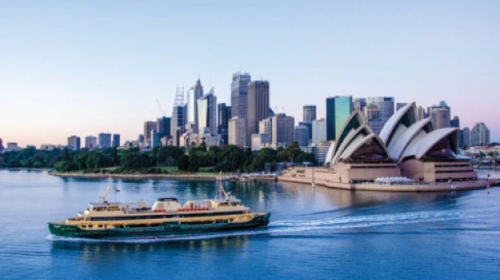Pakistan is a cricket-crazy nation of 225 million people. When the word “Australia” is mentioned, senior citizens reflect on how they were over-awed by Richie Benaud, Dennis Lillee, and Neil Harvey. Today, the Pakistani youth is über-impressed with such Australian cricket stars as Aaron Finch, David Warner, and Mitchell Starc. However, the relationship between Australia and Pakistan is just restricted to playing cricket with each as there are other deeper and mutually beneficial ties between the countries as well.
For Pakistani students, Australia has a favorable policy. For instance, as per an Australian academician, more than 16,000 Pakistani students are pursuing education in Australian colleges and universities, while top-notch universities welcome students from Pakistan. When he was informed that the Employers Federation of Pakistan is keen to promote skill development, technical and vocational education and training (TVET) in Pakistan, he suggested to check out the leading educational programmes and courses offered by Australian universities and colleges. He added that Pakistan should also learn about mining and dairy farming since Australia is a major exporter of minerals, meat, milk, as well as livestock.
In her message to the Pakistan Australia Business Forum (PABF), Ms. Margaret Adamson, who is former High Commissioner to Pakistan, said, “We have seen energetic engagement by our education service providers under MOUs with Government of Pakistan. In the vitally important TVET sector, this has included engagement of Australian Master Trainers to build up Pakistan’s cadre of TVET sector”.
It is a fact that the global image of Australia is quite positive and denotes excellence in a vast range of academic and professional fields, as the country has gone an extra mile in imparting this knowledge to developing countries.
The icing on the cake is, of course, the bilateral trade between Australia and Pakistan “Thanks to the Australian High Commission, the Australian Trade and Investment Commission (Austrade), and PABF, the total trade volume between our two countries has shown promising progress over the years,” says Pervez Madraswala, Chairman, Pakistan Australia Business Forum (PABF),
According to the United Nations COMTRADE database on international trade, in 2021, Pakistan imported goods and services of around US$700 million from Australia while exports crossed US$300 million. Australia’s major goods exports to Pakistan are pulses (primarily, chickpeas, lentils, and dun peas) and oilseed (mostly canola), along with fertilizer and scrap metals, while Pakistan’s top 10 products constitute 95% of exports to Australia. At the product group level, textile group constituted 69% of exports, agro-food group 12.6%, metals group 7.2%, leather group 6.1%, and surgical instruments 3.3%.

It is pertinent to mention canola here because Pakistan imports canola, usually from Canada, Australia, and Ukraine. Australia has been exporting canola to Pakistan for over 25 years and has succeeded in getting a strong foothold in Pakistan. According to a report, Canada, the world’s largest canola grower and exporter, is feeling the effects of last year’s poor crop. The Prairie Provinces, where the vast majority of canola acres are grown, had the crop cut sharply by drought last year and much of that region continues to suffer from dry weather. Ukraine is the third largest grower, but the Russian-Ukraine war has negatively impacted the production. Ukrainian President Volodymyr Zelensky has warned that the country could harvest half of a normal crop this year because of the Russian invasion. Moreover, more than one-fifth is grown in Russian occupied territories. On the other hand, Australia, which usually produces over 3.50 million tonnes (18-20% of the world’s canola exports), has had a bumper crop, and is well poised to take advantage of the shortage in Canada and Ukraine.
A brief comparison needs to be done. Pakistan has an area of 803,940 sq. km, arable sq. km is 321,000 or 40%, and the country’s population is over 225 million. On the other hand, Australia has an area of 7,682,300 sq. km, arable sq. km is 468,600 or just 6%, and population is only 26 million. Pakistan is importing pulses, oilseeds, wheat, cotton, etc., while Australia is earning billions from exports. There is now a catch-22 situation for Pakistan. A global trader and facilitator, during a teleconference with this writer, on assurance that that his identity would not be revealed, sounded the alarm bell. He said that people like him read the headlines that Pakistan is in a very difficult situation due to political instability, depreciation of the currency, dwindling foreign exchange reserves, non-availability of foreign loans, etc. He warned that there will be global food inflation and that Pakistan will face shortages of edible oil, wheat and soybean meal for poultry, etc., especially when there is no money to buy. He lamented, “Pakistan has lost the ability to buy the cheapest food grain and edible oil because the country has lost the ability to access imported grain”. Unfortunately, Australia can be the best source for all such requirements but Pakistan’s treasury is pretty much empty






